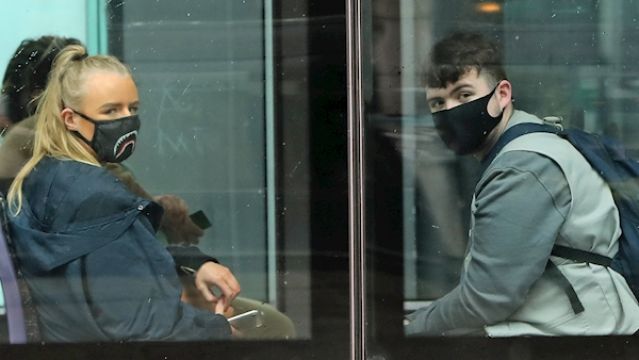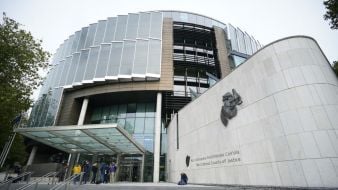The letter of September 11th, penned by acting Chief Medical Officer Dr Ronan Glynn and addressed to Minister for Health Stephen Donnelly, set out advice to Government ahead of the announcement of its new plan to live with Covid-19.
It followed a meeting of NPHET to consider the five-level framework of restrictive measures for combating the virus, where it also reviewed the national situation with a special focus on Dublin, Limerick and Kildare.
The population size of Dublin means that is represents a substantial disease reservoir that, if left unchecked, has the potential to transmit widely and quickly both within Dublin and to other areas of the country.
“The population size of Dublin means that is represents a substantial disease reservoir that, if left unchecked, has the potential to transmit widely and quickly both within Dublin and to other areas of the country,” Dr Glynn wrote.
NPHET concluded the situation in Dublin was of “grave concern” and warned “the most likely scenario, if no additional measures are taken, is that approximately 300 cases a day will be reported in Dublin by the end of September.”
At the time of the letter, Dr Glynn expressed concern at Dublin’s 14-day incidence rate of the virus, which stood at 67.8 cases per 100,000 population.
Less than a week later, Dublin’s 14-day incidence rate has now risen to 104.0 cases per 100,000 today, according to the Health Protection Surveillance Centre (HSPC).
Level 2.5
In the letter, NPHET advised that the Government implement Level Two of the public health restrictive measures in its plan for “Living with Covid-19”, a move announced publicly yesterday.
Dr Glynn wrote that although a move to further restrictions and Level Three in Dublin last week was considered, it was decided against in favour of additional restrictions on meetings between households and pubs remaining closed in the capital.
There is also the very real potential that the situation could deteriorate further. Moreover, these measures can only have a substantial effect on the course of the disease if there is wholehearted widespread collective buy-in.
Advertisement
He wrote that “pubs and bars should only open if there has been at least two weeks of stabilisation in the disease trajectory.”
Dr Glynn said NPHET made the decision to keep Dublin at Level Two based on evidence such as the “vast majority” of cases remaining in younger age cohorts, admissions to hospital remaining relatively low and mortality levels remaining stable at the time.
“The NPHET strongly cautioned that this approach is not without risk and there is no guarantee that further measures may not be necessary in the coming days or weeks and that the situation will be monitored closely,” he wrote.
“There is also the very real potential that the situation could deteriorate further. Moreover, these measures can only have a substantial effect on the course of the disease if there is wholehearted widespread collective buy-in for and adherence to the measures.”







